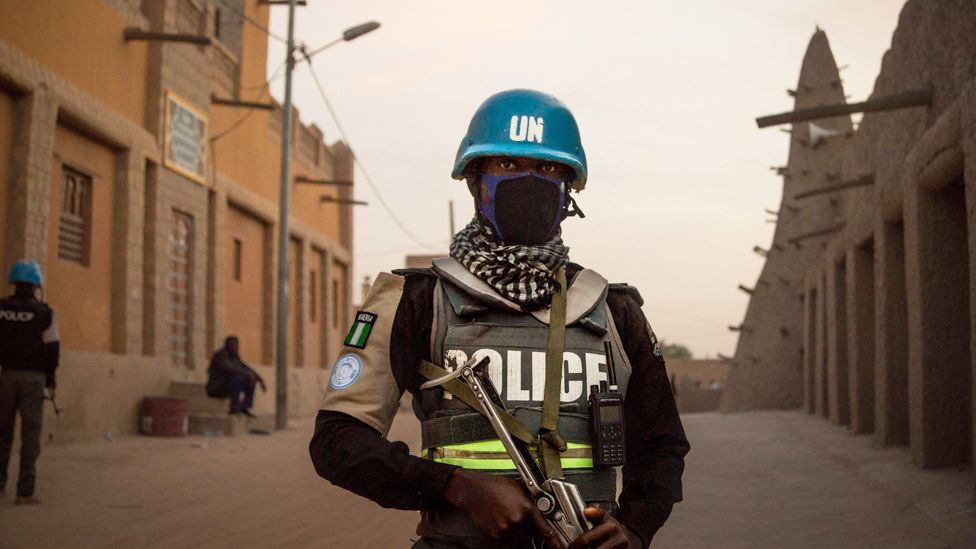The decision made by the UN Security Council on Friday regarding the future of the peacekeeping force in Mali is clear; they have little choice but to call off what has proven to be the deadliest of all similar UN operations worldwide.
187 peacekeepers have died during its more than ten-year deployment.
But it's not the number of deaths that is forcing the UN out of Mali. The military regime in the nation is adamant that the 12,000 foreign troops must leave despite a dire security situation that shows no signs of abating.
The Russian mercenary Wagner group, which is believed to have 1,000 fighters in Mali, will become even more crucial for security backup once the UN peacekeepers have left.
The vast nation of Mali, which stretches from tropical West Africa all the way to the Sahara Desert, is regularly the target of jihadist armed groups' attacks.
Despite Wagner's ferocious reputation, there must be doubts about its efficacy in combating the militants, even if manpower is increased by additional fighters redeployed from the war in Ukraine.
The recent argument between Yevgeny Prigozhin, the head of the mercenary group, and Russian President Vladimir Putin may cast doubt on the specific arrangements that govern the use of these forces.
Their presence serves as a useful way for the president of Russia to poke fun at the United States and France while also expanding the Russian presence in West Africa.
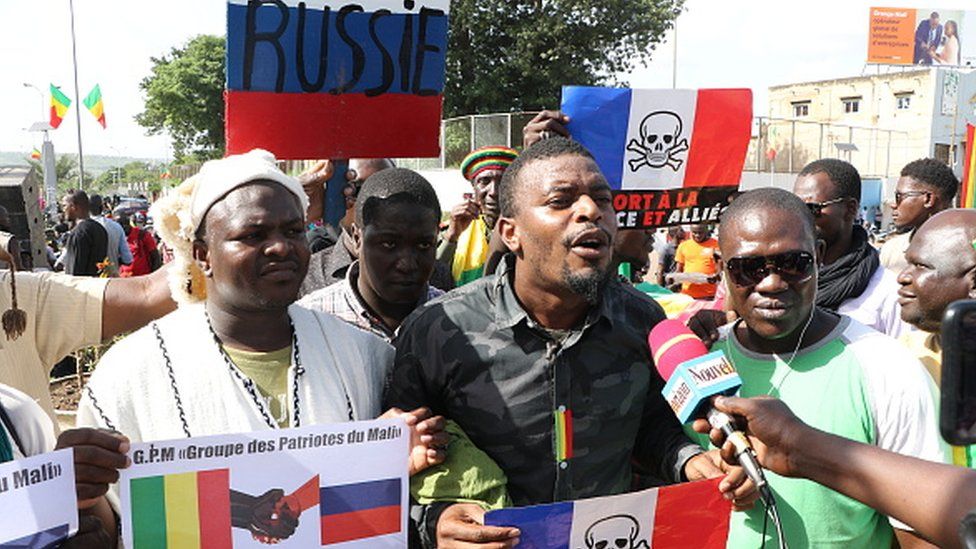
The French force Barkhane, which withdrew last year following the breakdown of trust between Mali and the former colonial power, had access to a large scale of airstrike power, armored units, and logistical support supported by US satellite intelligence. Wagner will not have these resources, however.
The holding of a few strategic bases, from which they could launch raids and patrols, appears to be more important to Wagner units than a broad strategic thrust.
Jihadist organizations have stepped up their operations and expanded their reach over the past 11 months that Mali has relied on Wagner rather than French support.
That trend might intensify once the UN departs as well, and the mercenaries' tough stance might further alienate the pastoralist Peulh and Tuareg communities (also known as the Fulani).
Violence in parts of central Mali, where the fertile inland delta of the River Niger should be West Africa's rice basket, has already been fueled by tensions between farming and livestock-herding communities.
More than 1,500 schools are closed as a result of the unrest, and the local economy is severely impacted. Many regions of the north are completely devoid of the Malian state, fundamental public administration, and essential services.
According to the monitoring organization Acled, this year has already seen 1,576 fatalities in 682 incidents.
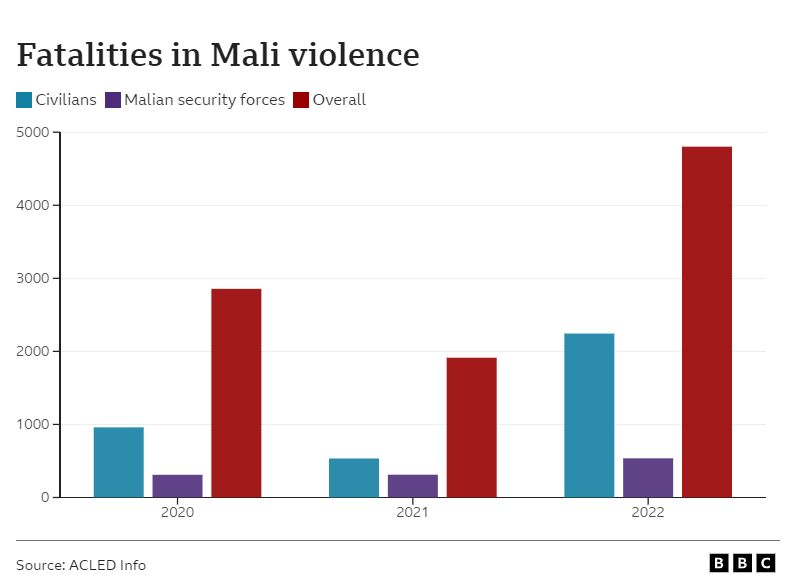
The situation is particularly bad in the northeast, where tens of thousands of villagers have now sought refuge in camps surrounding the tiny desert town of Ménaka. Communities in the north are more likely to be negatively impacted by the UN mission's withdrawal.
Despite claiming recent successes, the army is actually having trouble keeping up. Even Bamako's outskirts, the country's capital, located hundreds of miles to the south, have experienced attacks.
Colonel Assimi Gota, the military leader of Mali who overthrew the government in a coup in August 2020, has been putting pressure on the UN force known as Minusma to support the national army by assuming a much more aggressive anti-terrorist role.
However, the mission of the UN peacekeeping forces has been to protect civilians from militant attack, to support essential public services and humanitarian relief, and to support a 2015 agreement. As part of that agreement, ethnic Tuareg separatists in the north consented to stay within a united Mali in exchange for the localization of power.
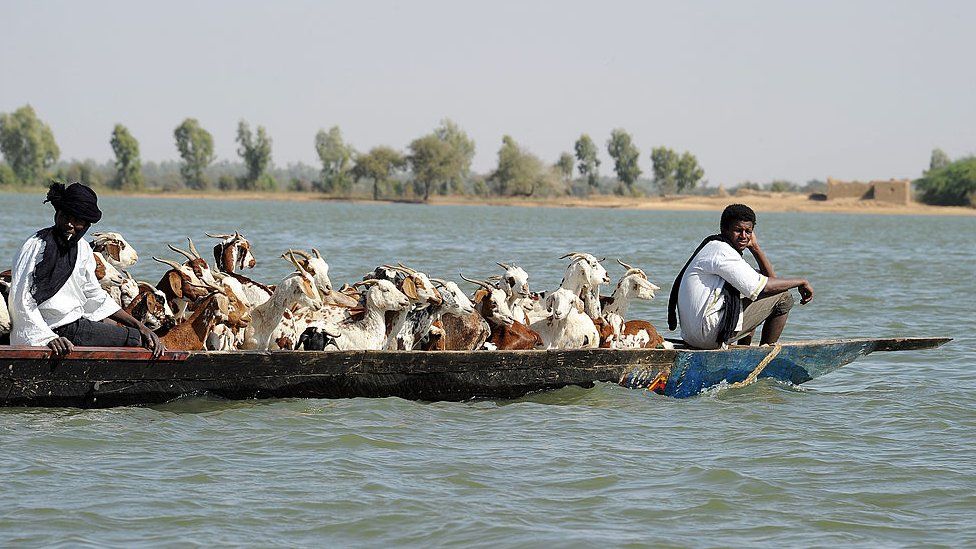
France's Barkhane unit, whose departure in August was largely attributed to Mali's choice to accept Wagner as a visitor, was in fact responsible for conducting aggressive anti-terrorist operations.
Mali has now decided that the UN force must also depart "without delay," despite France's draft resolution indicating that it will take six months, as it continues to be frustrated by Minusma's refusal to support its aggressive agenda.
But this dispute is not over yet. Col. Gota is also frustrated that the UN troops will not comply with his desire to reassert the national sovereignty of the central government and his lack of interest in properly carrying out the decentralization promised under a 2015 peace agreement with northern Tuareg rebels who had been fighting for Azawad, an independent homeland in the Sahara.
Furthermore, for the past two years, Mali's relationships with numerous Western governments, the UN, as well as many of its regional neighbors have been tainted by mistrust and resentment.
While French troops continued to lose their lives in the fight against the jihadists, Prime Minister Choguel Maga accused France of leaving the country "in mid-air" at the UN General Assembly in September 2021. Within months, Wagner became the government's choice.
Fellow regional assembly members, Ecowas, who was already irritated by Col Gota's inability to set a timetable for restoring democracy, denounced the presence of the mercenaries as a danger to the security of the entire area.
Then, over the course of the following 18 months, the government progressively increased the obstacles to the UN force's ability to carry out its mission by, for example, delaying approval for troop rotations and restricting the UN's ability to fly. This action appeared to be done in order to prevent oversight of the areas where Wagner's men were operating and even where the lives of injured soldiers were in danger.
The peacekeepers were also more exposed to attack after the French combat troops left.
Mali detained 49 Ivory Coast soldiers who had arrived to guard UN facilities as part of a long-standing agreement last July and accused them of spying. This occurred in the midst of an ongoing dispute with Ecowas over the transition timeframe. Until January, all but three of them remained in custody; however, after protracted negotiations, they were eventually released.
Ivory Coast, Germany, the UK, and Sweden all made announcements regarding their intent to withdraw their contingents as the UN force's operational circumstances grew more challenging.
The UN investigation into the murder of civilians in the village of Moura in central Mali in March 2022 was published this May, however, and that is when relations finally broke down.
The UN force was able to reach nearby communities, interview survivors, and obtain identification documents for 238 victims despite the junta's refusal to permit Minusma access to the site.
Its conclusion was damning: in March 2022, the army and allied "foreign" fighters killed more than 500 people in Moura, clearly alluding to Wagner.
The investigation team was threatened with a legal investigation by the government, which reacted angrily. It charged them with espionage, conspiring, and endangering state security.
After that, it was unlikely that its demand for the UN force to be dissolved quickly would come as a complete surprise.
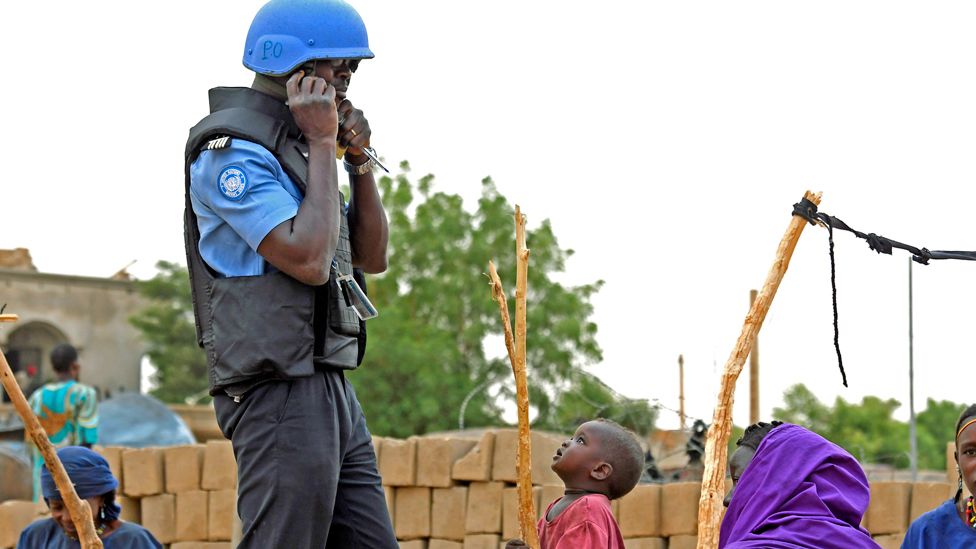
Furthermore, there had been months of mobilization of anti-Minusma sentiment.
One participant on a recent TV discussion show stated, "It is the entire Malian nation together that is rediscovering itself.".
The TV show host himself referred to the effort to demand the withdrawal of the UN force, which is primarily composed of African soldiers, as "yet another battle against the oppressor and the West.".
Col. Gota recently won support in a referendum for a new constitution that strengthens presidential power and allows military leaders to run in elections scheduled for the following year. He will be better able to advance his agenda now that the UN has been eliminated.
Ordinary Malians, particularly in the vulnerable north and center, might miss the UN force, though. While it was found to be unable to stop jihadist attacks, it did provide some level of containment, guaranteeing a necessary minimum of calm and stability in important towns so that essential services, administration, and welfare could function.
And at the very least, it kept the agreement with northern groups that had lost all faith in the military government alive.
When the UN peacekeepers leave, regions of the north where the army and Wagner are struggling to be heard may actually move even closer to de facto autonomy.
Daily life in many communities will likely become even more challenging away from the contentious city politics of Bamako.
At Chatham House in London, Paul Melly works as a consulting fellow for the Africa Program.

